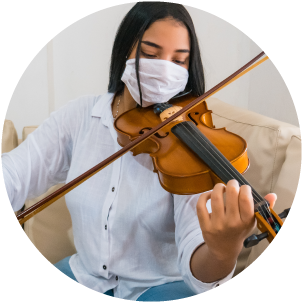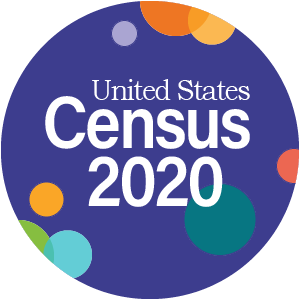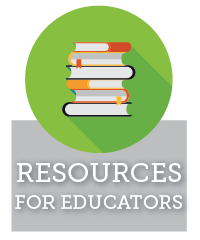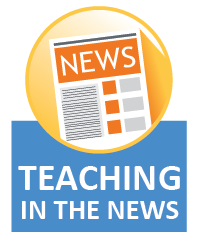You are here
Spark - September 2020
Jump to a section:
Dear Educators,
Congratulations on the start of the 2020-21 school year! After months of planning that included hearing ideas from parents, teachers and health experts; analyzing data; and watching what’s happening in other states and countries, I’m glad we are back to school again.
It seems like everything in this crazy year 2020 is so much harder, but there is joy in the traditions of a new school year. Students are excited to meet their teachers and see which friends are in their classes. Teachers are excited to see their students’ eyes light up with the joy of learning -- even if they watch it happen on a screen.
I know there have been tough moments when the challenges have seemed overwhelming. We’ve all struggled with some of the basic questions. How do we keep students and teachers healthy? How do we reach students who don’t have a reliable internet connection? How do we keep students present, focused and learning in this strange environment? And how do we keep ourselves sane and supported? These are tough and sometimes heartbreaking questions. Yet, you all are meeting these challenges daily, and making a difference in students’ lives, as you always do.
The COVID-19 pandemic and the resulting economic fallout are creating a dark period in our nation’s history. But I am an optimist. I believe we will forge a path forward and build new, personalized approaches to learning and refresh our innovative spirit. And when it’s all over, I know history will consider educators to be among the heroes who pulled this nation through.
I am in awe of the stories I hear every day about teachers who have adapted, improvised and innovated to support their students. I’m so grateful to you, and I can’t thank you enough because Colorado students need your dogged commitment now, more than ever.
We are all concerned about students who are struggling to make the transition back to school this fall. We know our children are dealing with an unprecedented level of stress, and some have experienced trauma and loss at home from illness, loss of income and even death. Your efforts to connect with students and create a sense of belonging within your school community will be absolutely critical.
I’ve heard some amazing stories about how teachers are connecting with their students virtually and in person; and I’d love to hear more. Please share the strategies you’re using on Facebook and Twitter, so that we can all learn about what’s working and try new things to keep students engaged.
Our state and our nation now have a better understanding and appreciation of how critical our schools are to the fabric of our communities, and the essential role educators play in not only the lives of students, but also the ability of entire families and communities to thrive. Thank you for your expert practice as educators, your empathy and your dedication to your students during this moment in our state’s and nation’s history and always.
Best,
Katy
The Colorado Department of Public Health and Environment worked with partnering agencies including the Colorado Department of Education and stakeholders to create a new matrix to help counties and school districts better identify what phase they should be in for protection against the coronavirus -- Stay at Home, Safer at Home or Protect our Neighbors.
The matrix is expected to be released on Friday, Sept. 11.
Once implemented, the matrix will streamline the process of moving through different levels, when counties and districts could qualify based on their objective, scientific metrics. The matrix, represented by a dial, will add simplicity and predictability to how communities operate based on virus transmission levels. Counties and districts can always choose to be more restrictive.
“We need to empower local communities with easy-to-follow guidance, if we are to continue to slow the spread of COVID-19,” said CDPHE executive director Jill Hunsaker Ryan. “We hope the dial will help provide local communities with the flexibility to move throughout the different levels of guidance as necessary to protect public health. We invite everyone to provide feedback on this matrix, so we can make sure it serves the needs of all Colorado communities.”
According to the matrix, each county is at one of five levels, depending on requirements. Each level has an associated level of allowances and capacity restrictions. The criteria for levels are based on:
- New cases.
- Percent positivity of COVID-19 tests.
- Stable or declining hospitalizations.
- A stable or improving daily case count.
- No anticipated future transmission risk factors.
- If applicable, a certain number of Protect Our Neighbors metrics achieved.
The dial will help districts determine whether they should be remote, hybrid or in person. The final guidelines will be available shortly after the comment period.
For a slide deck describing the dial, click here. The matrix will be available on CDPHE's webpage beginning Friday: covid19.colorado.gov.
Colorado Digital Learning Solutions (CDLS), the current state provider of courses for the statewide supplemental online and blended learning program, Colorado Empowered Learning, is looking for licensed Colorado teachers to help teach supplemental online courses during the 2020-21 school year.
Due to the unprecedented spike in demand for supplemental online courses, CDLS seeks to hire teachers immediately. Employment is done on a contract basis, with flexible hours and can be a great source of additional income for teachers who are interested.
Join the effort to meet the needs of students across the state by reviewing this flyer.
Visit the Join Our Team webpage on the CDLS website for more information.
The Colorado Department of Education is providing free training to kindergarten through third-grade teachers in scientifically or evidence-based practices in teaching reading to help them satisfy a new requirement.
As part of a change to the READ Act by the legislature, all teachers of kindergarten through third grade must complete a training by fall of the 2021-22 school year.
Registration information for CDE's training options are posted on the K-3 Teacher Evidence-Based Reading Training Requirements webpage.
With the COVID-19 pandemic, there are concerns over a potential undercount of vulnerable populations. Colorado depends on a complete and accurate count to receive federal funds for important programs like school nutrition, special education, Title programs, and many other vital programs.
That’s why with the U.S. Census Bureau ending all counting efforts for the 2020 Census on Wednesday, Sept. 30, teachers can be a vital part of helping turn out the count.
U.S. Census Bureau Statistics in Schools (SIS) virtual lessons are now available for teachers to access, which can both help students learn important lessons as well as build awareness about families filling out the Census before the final count.
These free lesson plans are available through Google Classroom with code: oqm32yo. There are currently eight lessons available for grade levels K-12. For help with Google Classroom please watch: How to Access 2020 Census Lesson Plans Through Google Classroom. CDE has also created a Census Resources for Educators webpage which can be found here.
Not only is it not too late to fill out the Census, it’s now easier than ever to be counted and vitally important for the health of our communities.
Individuals and families can be counted in less than 10 minutes by responding online, over the phone or in person. Information from the Census provides crucial federal funding to school districts and helps support a wide variety of programs. Remember, the Census is easy, safe, and confidential.

CDE and the Colorado Department of Public Health and Environment have partnered to provide performing arts guidance for K-12 schools. The updated information is part of CDE's 2020-21 Planning Framework and Toolkit and located within the "Encourage Safe Physical Distancing During Activities and Limit Sharing" section.
Read the full guidance for choir, chorus, band and indoor athletic pursuits, whether artistic or competitive.
For the rest of the guidance, please visit this webpage.

CDE seeks 10 to 12 experts to join a committee that will make recommendations about incorporating the Holocaust and Genocide into the current Colorado Academic Standards for social studies.
The creation of this committee is the result of House Bill 20-1336, which was passed into law this year. The committee will ultimately make a recommendation to the State Board of Education to revise the standards for social studies. Additionally, this committee will make recommendations towards the development of a resource bank with materials pertaining to best practices and materials in Holocaust and Genocide studies.
Interested parties should complete an application by Wednesday, Sept. 16.
Online Learning Resources
CDE created a host of resources to help teachers who are teaching students who are online.
- How families can avoid stress and anxiety during online learning, Aug. 26, 2020, KOAA News.
- Parents as essential partners in pivoting their child's education and fostering remote learning, Aug. 31, 2020, Colorado Education Initiative.
- How two Colorado kindergarten teachers, one in person, one online, navigated a new reality, Aug. 25, 2020, Chalkbeat.










Connect With Us





